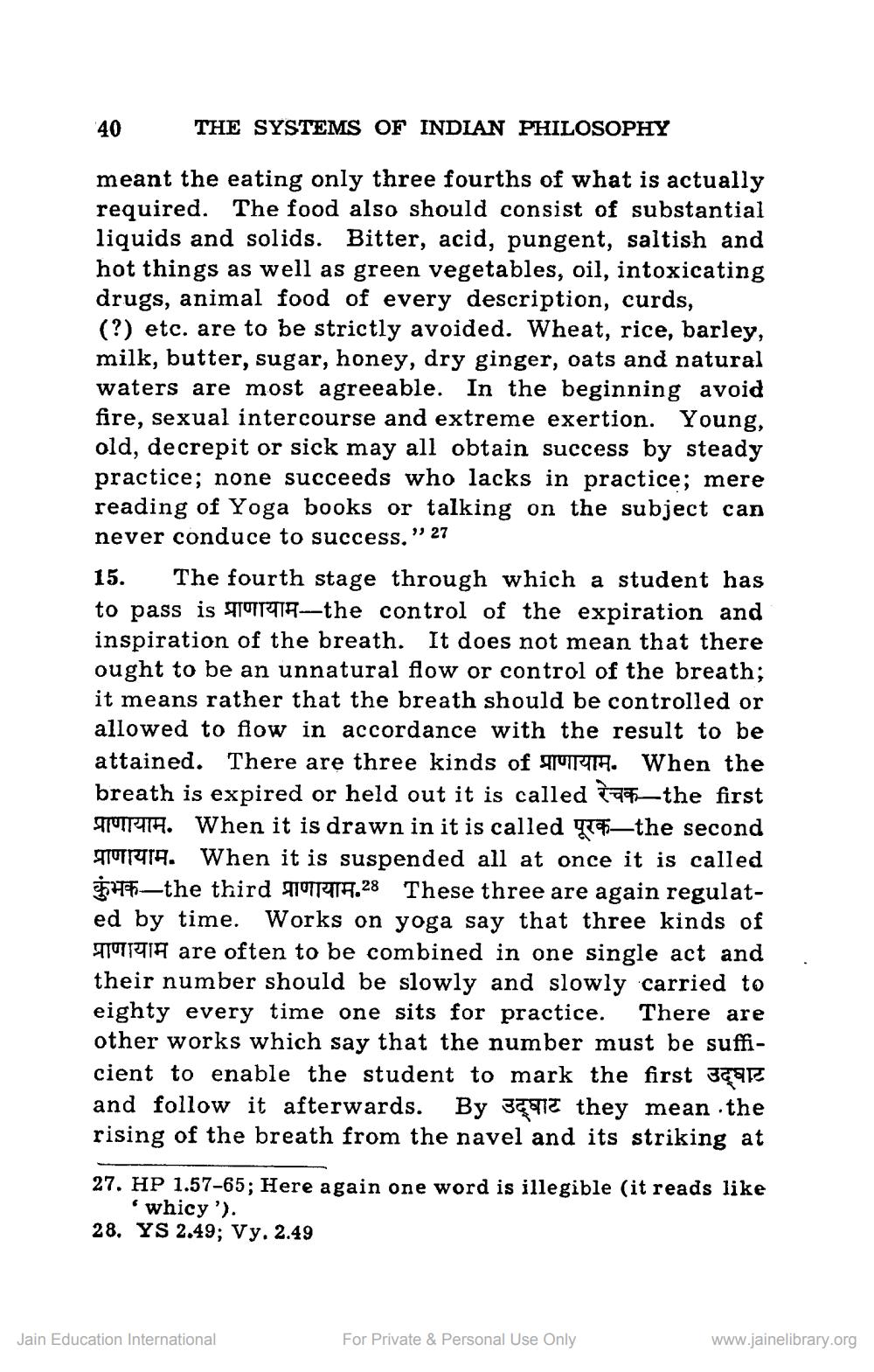________________
40
THE SYSTEMS OF INDIAN PHILOSOPHY
meant the eating only three fourths of what is actually required. The food also should consist of substantial liquids and solids. Bitter, acid, pungent, saltish and hot things as well as green vegetables, oil, intoxicating drugs, animal food of every description, curds, (?) etc. are to be strictly avoided. Wheat, rice, barley, milk, butter, sugar, honey, dry ginger, oats and natural waters are most agreeable. In the beginning avoid fire, sexual intercourse and extreme exertion. Young, old, decrepit or sick may all obtain success by steady practice; none succeeds who lacks in practice; mere reading of Yoga books or talking on the subject can never conduce to success.” 27 15. The fourth stage through which a student has to pass is STTTTT1A-the control of the expiration and inspiration of the breath. It does not mean that there ought to be an unnatural flow or control of the breath; it means rather that the breath should be controlled or allowed to flow in accordance with the result to be attained. There are three kinds of T1414. When the breath is expired or held out it is called 12-the first प्राणायाम. When it is drawn in it is called पूरक-the second
011914. When it is suspended all at once it is called 4—the third 91714TH.28 These three are again regulated by time. Works on yoga say that three kinds of
191# are often to be combined in one single act and their number should be slowly and slowly carried to eighty every time one sits for practice. There are other works which say that the number must be sufficient to enable the student to mark the first glas and follow it afterwards. By 3CEIC they mean .the rising of the breath from the navel and its striking at
27. HP 1.57-65; Here again one word is illegible (it reads like
'whicy'). 28. YS 2.49; Vy. 2.49
Jain Education International
For Private & Personal Use Only
www.jainelibrary.org




